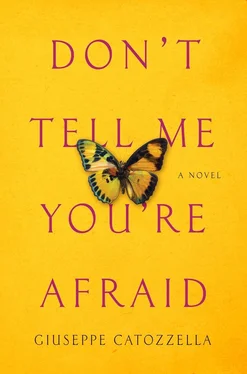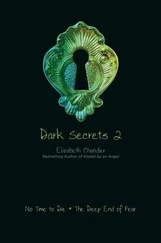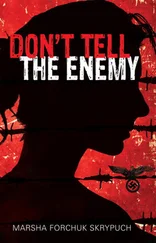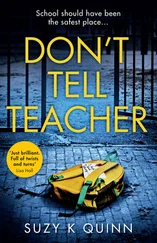Inside was a mountain of bills.
I tried to count them quickly. Maybe a million shillings. A ton of money. A family could live comfortably on it for two years. Eating meat twice a week, fish on Friday. It was a fortune.
Who could have…?
Suddenly there was a thud from what had been Yassin and Alì’s room. It had been years since it was used, though it seemed like millennia. For a time, while Aabe was still alive, he and Said had used it as a storeroom; then no one had gone near it. I hadn’t set foot in it for ages. Since Alì and his family had left, I’d acted as if it no longer existed, as if it had never existed. Just the thought of all the hours that Alì and I had spent in there would have filled me with sadness.
Then I heard the noise again.
It must be a cat, or maybe a rat. Still, I had never heard any sounds coming from there before.
Slowly I approached the door. Nothing, not a sound. Then I opened it and stood in the doorway. It was very dark — the moonlight filtered in only faintly from the door — and the room smelled damp, musty, and dusty.
Gradually my eyes began to adjust to the dark.
The room was full of Aabe and Said’s cartons, along with a few tools and piles of Hooyo’s fruit crates, all stacked up. Everything had been heaped near the entrance, blocking the view toward the back, where I remembered Alì’s family’s mattresses were stored.
All of a sudden, I heard the same sound as before, but louder. It had to be a rat. I took a few steps forward.
Then I saw it.
A mattress had been moved against the back wall. On it, sitting cross-legged, was a shadowy figure.
I let out a stifled scream and leaped back, bumping into a large cardboard box and losing my balance. I was on the ground. I was making an abrupt move to get up when a voice spoke.
“Samia.”
It was a man, maybe a boy, a male in any case, but the voice told me nothing else.
“Samia, it’s me. Don’t you recognize me?”
I squinted and took a closer look at the shadow. He had long hair and an unkempt thicket of beard on his chin and cheeks.
A shiver of cold terror ran down my spine.
I didn’t breathe.
“It’s Alì.”
I moved nearer to him. Could that bearded man really be Alì? Was that lined, sunken, stricken face his?
I took another step, bumping the mattress with my foot. The eyes were those of my best friend, but they were hidden behind a hardened shell.
I knelt down on the mattress and right away, up close like that, I had the urge to touch him.
At first he drew back, but then he yielded.
We hugged each other tighter than we’d ever done before. On that dusty mattress in a room full of cobwebs and dampness.
“You’ve come back?” I asked. I recalled that night so many years ago, when Aabe had given me a pair of sneakers and I had gone into that same room to show them to my friend. He had been lying on the mattress, hiding his head under his arm. He had been little then. A child.
“I’m leaving,” he replied. His voice was unfamiliar. Only his small, close-set eyes and flat nose were as I remembered. The lips were surrounded by the black beard; I couldn’t see them clearly.
“What do you mean you’re leaving? You just got back!”
“I’ve stayed too long. We weren’t supposed to meet.” His voice was harsh.
“Why did you come home?”
“To leave you the hijab….”
A pause.
Then he started sobbing and told me everything.
He had joined Al-Shabaab many years ago, shortly after his father, Yassin, had made the decision to leave Bondere.
His brother Nassir had already been recruited, having gone along with his friend Ahmed. For Aabe Yassin it had been a terrible blow, and he had thrown Nassir out of the house. He had feared that Alì would end up pursuing the same path, following his older brother. So they had moved far away to the south, to the small town of Jazeera, where Yassin and Aabe had been born and raised. There his father had hoped to keep him away from the extremists. But he had been mistaken, because Ahmed and Nassir had introduced Alì to the administrative committee of Al-Shabaab even before the family left. That’s why Ahmed had been looking for Alì that afternoon.
It had been a difficult decision for him: Should he follow his brother or listen to his father? In the end he had given in. Shortly after the move to Jazeera, he’d left Yassin’s house and joined Nassir.
For the first time in his life he’d felt he was being treated like he was worth something; he’d gone to school, he’d learned to write, he had a decent place to live, a bathroom, three meals a day.
“Remember when I was little and couldn’t even read?” he asked me with that hard-edged voice. “I only learned how later, thanks to you and your running and those old manuals from the library.”
My voice was all choked up; I couldn’t answer. All I could do was nod my head as I stroked his arm.
“Since the day I followed my brother, I got everything. What I’d never had, what I’d never been.”
I squeezed his hand and gestured for him to go on.
Yassin had renounced him and his brother and turned his back on them, but as a result of that they found themselves free to have the life they would never have been able to afford. An education, clean clothes, full bellies.
Alì immediately excelled in Koranic studies, in the use of weapons, and in military strategy. He quickly outshined Nassir and even Ahmed, who had meanwhile been sent to a training camp near the Lamu Archipelago, off the northern coast of Kenya. At a very young age Alì had earned the trust of Ayro himself, the head of Al-Shabaab.
At that point Alì stopped; he could no longer continue.
I begged him to go on; there was a coldness and emptiness in his eyes that scared me, but those sobs were pleading to be heard, to be forgiven.
“Go on, Alì. I’m here,” I told him, swallowing the lump in my own throat and caressing his face.
“I had to do a bad thing…. I had to do something that I would never…” Again he burst into tears that he’d been holding back. Mucus was running out of his pinched nostrils; he looked like the little boy I’d always known. I held his hands tightly and told him not to worry.
In the meantime my eyes had adjusted to the darkness, and I could now better make out his features, the good fabric of his clothes.
Around us there was only silence and a strong musty smell.
Alì took a breath, wiped away his tears, and continued.
The fundamentalists knew me and my sister Hodan; they called us “the two little subversives.” They also knew our father, who had never been willing to bend to the Islamic warlords. They knew that Alì and I had grown up together in the same house. After my win in Hargeysa, Ayro had gotten it into his head to teach me a lesson that would make me get over the urge to run.
They had to get rid of Aabe.
And so Ayro had gone to Alì and asked him to point Aabe out to the man who was to shoot him.
He’d had no choice. It was the cruelest, most heartless thing for him, as if he’d been asked to kill his own father. Yet if he hadn’t agreed to do it, many more people would have been blown up along with the intended target. With the help of someone who knew Aabe, however, they could just gun him down.
So that morning at the Bakara market Alì had hidden among the crowd and stayed close to Aabe for a while. Close enough to smell his scent, which he remembered perfectly. The scent of his clothes, which for years had been the same as his own, since Hooyo did the wash for Alì’s family as well.
Then Alì’s eyes turned cold and he stopped talking.
I was petrified, turned to stone. The words had entered my ears, but it was as if they didn’t want to go all the way to my brain and had stopped there, waiting for me to shake my head and pitch them out. I don’t know what I did, maybe nothing. Maybe I shouted or cried. I don’t know. I don’t know how much time went by either.
Читать дальше




![Ally Carter - [Gallagher Girls 01] I'd Tell You I Love You But Then I'd Have to Kill You](/books/262179/ally-carter-gallagher-girls-01-i-d-tell-you-i-lo-thumb.webp)







